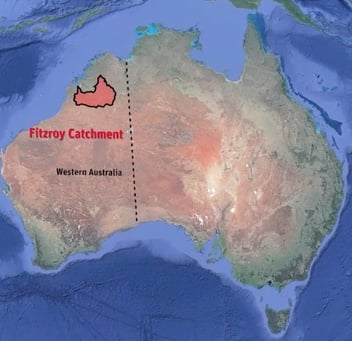How water policy can help Australia's economy bounce back from COVID-19
The Australian Water Association (AWA) has developed a raft of recommendations for the National COVID-19 Coordination Commission, outlining avenues for increasing employment and economic activity following the easement of COVID-19 restrictions.
Prime Minister Scott Morrison announced the establishment of the National COVID-19 Coordination Commission on 25 March 2020, with the primary role of supporting the Government’s plans for Australia’s economic recovery following the impacts of COVID-19.
The AWA’s recommendations outline the water sector’s vital role as an economic driver for Australia, and are proposed by the AWA under three key categories:
- Water projects for regional economic development
- Water security
- Capturing resilience from COVID-19 lessons learnt
The recommendations under the categories aim to generate immediate employment, generate short term stimulus for local communities and businesses, strengthen water sector supply chains, as well as being capable of being implemented immediately or within the next 12 months.
Regional development
The first category of recommendations focuses on fast-tracking existing regional water projects, prioritising regional water asset upgrades and investing in the support of regional utilities' use of digital technologies, as well as supports to increase capacity building for regional water utilities.
“AWA is seeking National Cabinet endorsement to fast-forward the implementation of water projects included within existing capital budgets of regional water utilities. AWA estimates that projects valued in excess of $500M could be implemented/continued immediately,” the recommendation says.
The recommendation also proposes the establishment of a fund of $1.5 billion to fund regional water projects to address water quality issues and their concomitant public health risks.
“These projects would also fast-track regional development with the provision of improved water services to attract new industrial, commercial, and residential investment,” the recommendation says.
“Eligible projects to include the repair of pipe leakage, upgrade of water treatment plants, investment in new water recycling plants, recreational water projects, and increased water quality testing across regional areas with remote water monitoring technology (potentially linked with the data collection of the Bureau of Meteorology).”
The recommendation says that online monitoring and control via investment in digital technologies will allow regional utilities to detect issues before they become apparent to the customer for more efficient and effective water utility.
“Customers will have information on their water services that can be used to monitor usage (this is especially relevant where daily targets per person are set under very high water restriction levels that are still in place in some regional areas),” it says.
“The adoption of technology will yield safer, more reliable water supplies for our communities whilst conserving water.”
Increased water security
In order to future proof Australia’s water security, the AWA recommends a fund valued at $4 billion to be established for competitive bids in relation to water security initiatives, including water recycling projects, advanced digital water technology and stormwater harvesting.
“Eligible projects would include potable water recycling, water for industrial reuse, mining water discharge for reuse, water recycling for recreational use, desalination for potable and non-potable uses, and managed aquifer recharge projects,” the recommendation states.
The AWA also recommends “the rollout of advanced digital technology to better monitor the management and distribution of water and wastewater. This includes multi-purpose smart metering capable of providing customers and water utilities with accurate and transparent data.”
Furthermore, AWA recommends investment in stormwater harvesting projects, which have proven to successfully augment water supplies.
“The harvesting of unused stormwater provides a massive resource that can be recycled for recreational uses to irrigate playing fields and public parks, community gardens and urban greening projects. It can also augment other sources of supply of treated drinking water,” the recommendation stated.
Moving forward following COVID-19
In order to make the most of lessons learnt from COVID-19, the AWA recommends the establishment of a national protocol on essential work, a new water industry National Code of Conduct on Procurement, and a water industry Code of Conduct for Communicable Diseases.
The national protocol on essential work should define “the ‘essential work’ undertaken by the water industry for agreement by all State and Territory Governments. Such a protocol would eliminate any confusions or interruptions to the provision of water services during the next national crisis,” the recommendation says.
“The National Code would cover standard tender provisions, payment terms, equitable rewards for preparation of procurement proposals, and a fair allocation of risks between the parties.”
The proposed Code of Conduct for Communicable Diseases should document the water industry’s COVID-19 responses and systems for use during the next crisis, the recommendation states.
Further to these proposed measures, the AWA also recommends implementing more thorough community engagement regarding the value of water, particularly in the context of a pandemic, as well as continued efforts to share COVID-19 learnings across the Asia-Pacific through existing water industry partnerships.
Read the Australian Water Association's full submission to the NCCC here.

